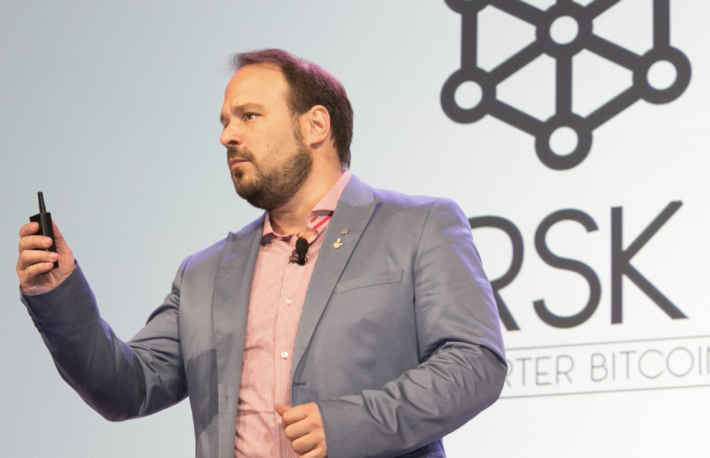In a 2018 report on blockchain technology, Deloitte identified five vectors of progress for promoting adoption. Topping the list was the need to enhance performance and interoperability. Ultimately, Deloitte concluded, “Help is on the way as a growing number of industry participants work to enable cross-blockchain transactions, interconnectivity, and standardization.”
When it comes to decentralized finance (DeFi), that prediction is increasingly coming to fruition as RSK, a Bitcoin-based smart contract and DeFi platform, announced the successful launch of its RSK token bridge that connects its Bitcoin-powered smart contracts with Ethereum’s popular network.
Decentralized finance is proving to be an important expression of blockchain technology as hundreds of companies harness the capabilities of the blockchain to expand opportunities beyond the traditional banking system. Indeed, this idea of an inclusive, open finance economy is so compelling that the team at Consensys have dubbed 2020 the year of DeFi, and RSK is helping bring this vision to fruition.
Bridging the Blockchains
Already, RSK operates a sidechain, providing a two-way bridge that equips users to use their BTC in RSK as part of their smart contract ecosystem. However, the recently announced RSK token bridge brings a direct connection between the platform and Ethereum’s ERC20 tokens and dApp ecosystem.
While it imbues a big payoff, the process is relatively simple. RSK’s bridge locks the original token in the RSK blockchain while creating an ERC777 side token that is compatible with Ethereum’s network.
RSK sees these developments not only as a big step for their platform but also for the blockchain ecosystem as a whole. Adrian Eidelman, RSK Strategist at IOV Labs, notes, “Interoperability has been a cornerstone of the RSK vision from the start. We believe being able to offer Bitcoin’s benefits to Ethereum users and to connect these respective developer communities is a crucial step for the blockchain ecosystem as a whole.”
Bitcoin and Ethereum share well-established name recognition, and their blockchains already account for some of the most dynamic activity in the crypto space. RSK’s efforts are bridging these platforms is a new way for an important purpose.
Building Up the Ecosystem
Decentralized finance is growing at a rapid rate, as more people gravitate toward the security and privacy imbedded in blockchain platforms. However, for these services to fully realize their potential, they will require additional interoperability and compatibility. Simply put, users will not gravitate to dozens of siloed, independent platforms. They are looking for a seamless experience that is emblematic of the comprehensive financial system that already exists.
By targeting Ethereum, one of the most prominent and popular platforms for decentralized financial services, RSK is trying to build up the ecosystem to be more user-friendly.
Money on Chain, the first stablecoin protocol for Bitcoin, will be one of the first to use RSK’s bridge platform into the Ethereum ecosystem. As a result, Ethereum users can access the platform’s US-dollar pegged stablecoin, and they can use the BitPro token, a niche product for risk-oriented traders who want to hold leveraged trading positions.
“RSK’s token bridge will make it possible for tokens such as DOC or BPRO to be easily integrated by ERC20 solutions, sharing the security, and global recognition of Bitcoin with the vibrant DeFi ecosystem currently developed in Ethereum,” writes Max Carjuzaa, co-founder of Money on Chain.
Ethereum is at the center of the DeFi space, and the scalability and interoperability of its DeFi capabilities are critical to its continued ascension, and, more importantly, its adoption. RSK’s interoperability bridge connecting Bitcoin and Ethereum is the latest development in this regard. Hopefully, it’s indicative of a trend that will further enable blockchain platforms to provide new and better financial services to the billions of people looking for just such an opportunity.

